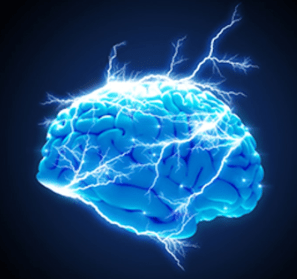Epilepsy
Epilepsy is a central nervous system (neurological) disorder in which brain activity becomes abnormal, causing seizures or periods of unusual behavior, sensations and sometimes loss of awareness. Anyone can develop epilepsy. Epilepsy affects both males and females of all races, ethnic backgrounds and ages.
People with epilepsy usually experience recurrent seizures. These seizures occur due to a disruption of electrical activity in the brain, which temporarily disturbs the messaging systems between brain cells. Seizure symptoms can vary widely. Some people with epilepsy simply stare blankly for a few seconds during a seizure, while others repeatedly twitch their arms or legs. Having a single seizure doesn’t mean you have epilepsy. At least two seizures without a known trigger (unprovoked seizures) that happen at least 24 hours apart are generally required for an epilepsy diagnosis.
Symptoms
The main symptom of epilepsy is recurrent seizures. Because epilepsy is caused by abnormal activity in the brain, seizures can affect any process your brain coordinates. However, if a person experiences one or more of the following symptoms, they should seek medical attention, as it may indicate epilepsy:
- a convulsion with no fever
- short blackouts or confused memory
- intermittent fainting spells, during which they lose bowel or bladder control, frequently followed by extreme tiredness
- temporary unresponsiveness to instructions or questions
- sudden stiffness for no apparent reason
- sudden falling for no apparent reason
- sudden bouts of blinking without apparent stimuli
- sudden bouts of chewing without any clear reason
- temporarily seeming dazed and unable to communicate
- repetitive movements that seem involuntary
- fearfulness for no apparent reason
- panic or anger
- peculiar changes in senses, such as smell, touch, and sound
- jerking arms, legs, or body, which will appear as a cluster of rapid jerking movements in babies
- Temporary confusion
- A staring spell
- Stiff muscles.

Causes
Epilepsy has no identifiable cause in about half the people with the condition. In the other half, the condition may be traced to various factors, including:
- Genetic influence.Some types of epilepsy, which are categorized by the type of seizure you experience or the part of the brain that is affected, run in families. In these cases, it’s likely that there’s a genetic influence.
Researchers have linked some types of epilepsy to specific genes, but for most people, genes are only part of the cause of epilepsy. Certain genes may make a person more sensitive to environmental conditions that trigger seizures.
- Head trauma.Head trauma as a result of a car accident or other traumatic injury can cause epilepsy.
- Brain abnormalities.Abnormalities in the brain, including brain tumors or vascular malformations such as arteriovenous malformations (AVMs) and cavernous malformations, can cause epilepsy. Stroke is a leading cause of epilepsy in adults older than age 35.
- Meningitis, HIV, viral encephalitis and some parasitic infections can cause epilepsy.
- Prenatal injury.Before birth, babies are sensitive to brain damage that could be caused by several factors, such as an infection in the mother, poor nutrition or oxygen deficiencies. This brain damage can result in epilepsy or cerebral palsy.
- Developmental disorders.Epilepsy can sometimes be associated with developmental disorders, such as autism.
Treatment
There is currently no cure for most types of epilepsy. A doctor may prescribe antiepileptic drugs (AEDs) to help prevent seizures. If these drugs do not work, some other potential options include surgery, vagus nerve stimulation, or a special diet.
AEDs appear to help control seizures in around 60-70% of cases, according to the American Epilepsy Society. The type of seizure a person has will decide which specific drug the doctor will prescribe.
People take the majority of AEDs by mouth. Common medications trusted source for treating epilepsy include:
- valproic acid
- carbamazepine
- lamotrigine
- levetiracetam.
It is important to note that some drugs may prevent seizures in one person but not in another. Also, even when a person finds the right drug, it may take some time to find the ideal dosage.
Prevention
It is not possible to prevent all cases of epilepsy. However, taking the above steps may help reduce the risk.
- wearing a helmet when riding a bicycle or motorcycle, to help prevent head injuries
- seeking perinatal care, to prevent epilepsy from birth injuries
- managing risk factors for stroke and heart disease, which could cause brain damage that results in epilepsy
- practicing good hygiene and preventative methods to avoid cysticercosis, an infection that is the most common cause trusted source of epilepsy around the world, according to the CDC.

